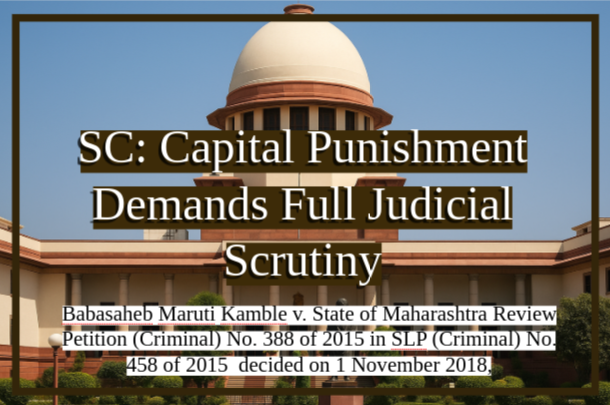“The Gavel Must Not Bruise the Hand That Holds It”— SC on Judicial Discipline and HC Strictures
- M.R Mishra

- Jul 18, 2025
- 2 min read
In a significant judgment the Supreme Court of India, in Kaushal Singh v. State of Rajasthan, has firmly reminded constitutional courts of the need for judicial restraint while commenting on judicial officers' conduct.
What's The Matter?
The appellant, a serving District Judge from Rajasthan, had approached the apex court against severe observations made against him by the Rajasthan High Court in a bail matter involving a principal accused in an IPC Section 307 case.
The High Court, while rejecting the bail plea of the accused Sethu @ Angrej, not only criticized the bail order passed earlier by the Judicial Officer but also went so far as to record strictures alleging “indiscipline, negligence and disobedience” of High Court judgments.
Importantly, these remarks were made without giving the officer a chance to be heard a direct affront to the principle of natural justice.
What Court Said?
Setting aside these observations, the Supreme Court, in a lucid judgment authored by Justice Sandeep Mehta (with Justices Vikram Nath and Sanjay Karol concurring), drew upon past precedents especially Re: 'K', A Judicial Officer and Sonu Agnihotri v. Chandra Shekhar to caution against using the judicial forum for publicly censuring subordinate judicial officers.
The Court reiterated that while judges are not immune to errors, any critique of their conduct should be dealt with on the administrative side, and not in open court orders, lest it causes irreversible reputational harm.
The bench pointedly noted that the Rajasthan High Court’s entire criticism was based on its own earlier decision in Jugal v. State, which itself had been overruled by the Supreme Court in Ayub Khan v. State of Rajasthan (2024).
Moreover, the Judicial Officer's decision, though arguably erroneous in overlooking the accused’s criminal antecedents, did not reflect mala fide intent, warranting such caustic remarks.
Taking a constructive turn, the Court recommended that all High Courts across the country adopt a rule akin to Punjab and Haryana High Court’s mandating disclosure of the accused’s criminal history in every bail application.
The aim is to ensure that inadvertent lapses do not occur due to concealment of past conduct by the accused or counsel.
The verdict does more than just vindicate one judicial officer it reaffirms that judicial independence, dignity, and fairness must be protected both within and outside the courtroom.
The power to correct cannot turn into a platform for condemnation, and the robe must not become a target under the very system it seeks to uphold.







Comments